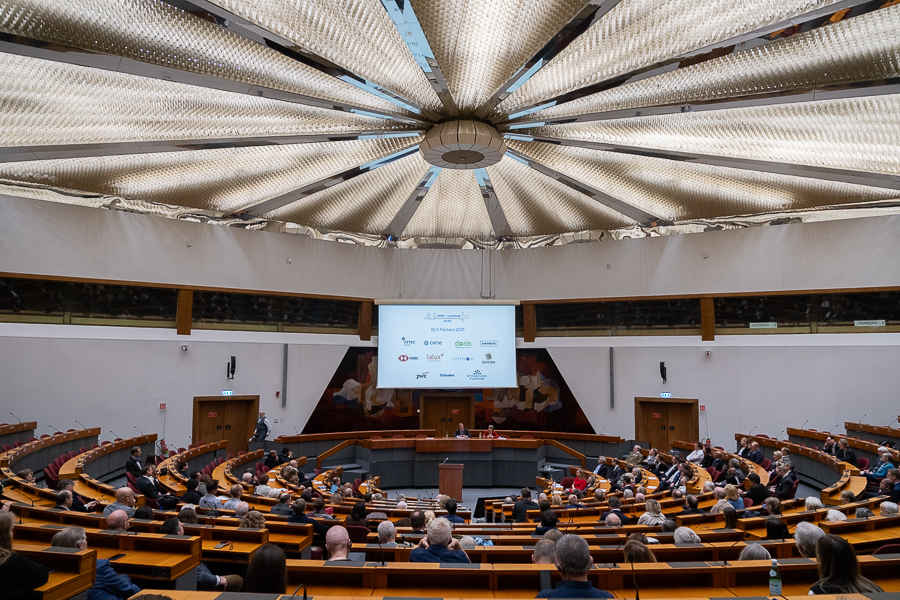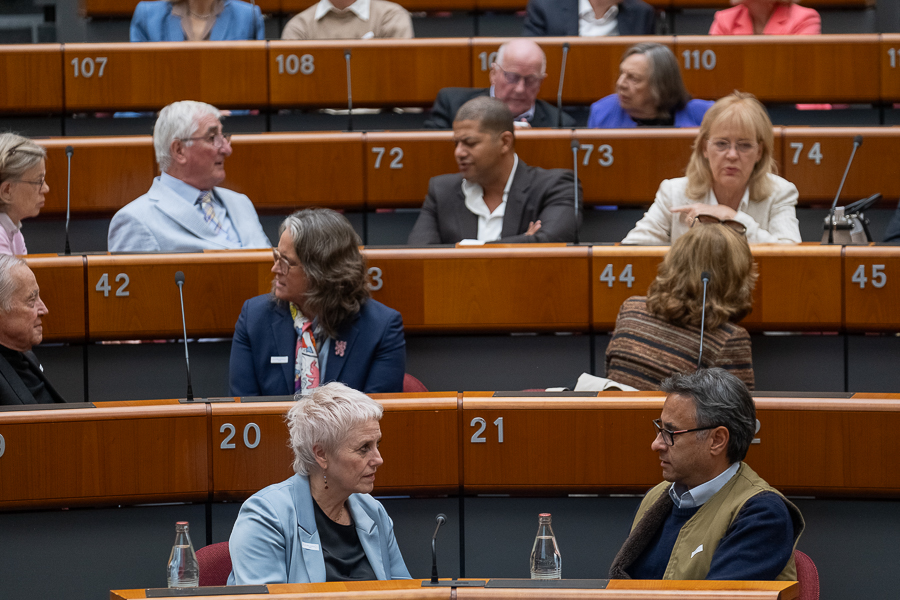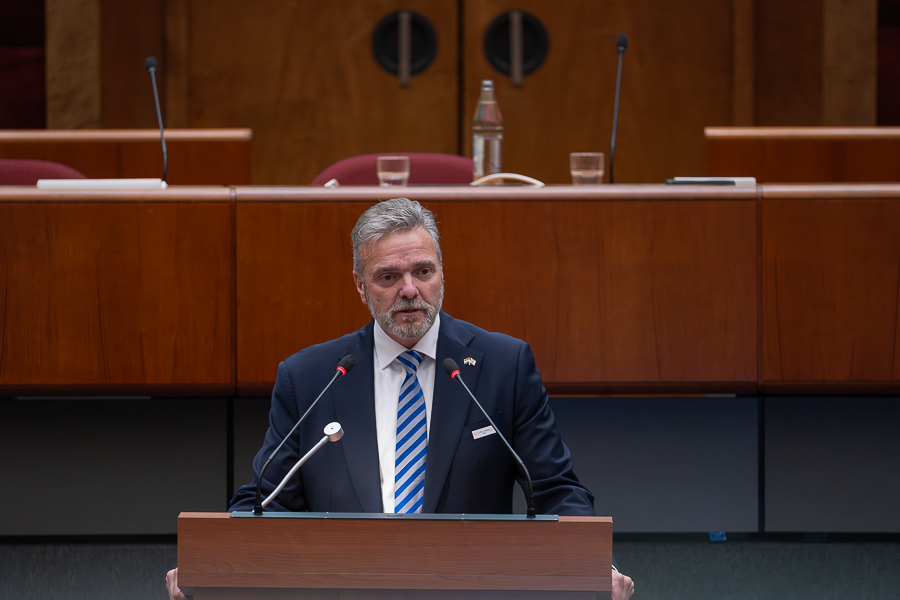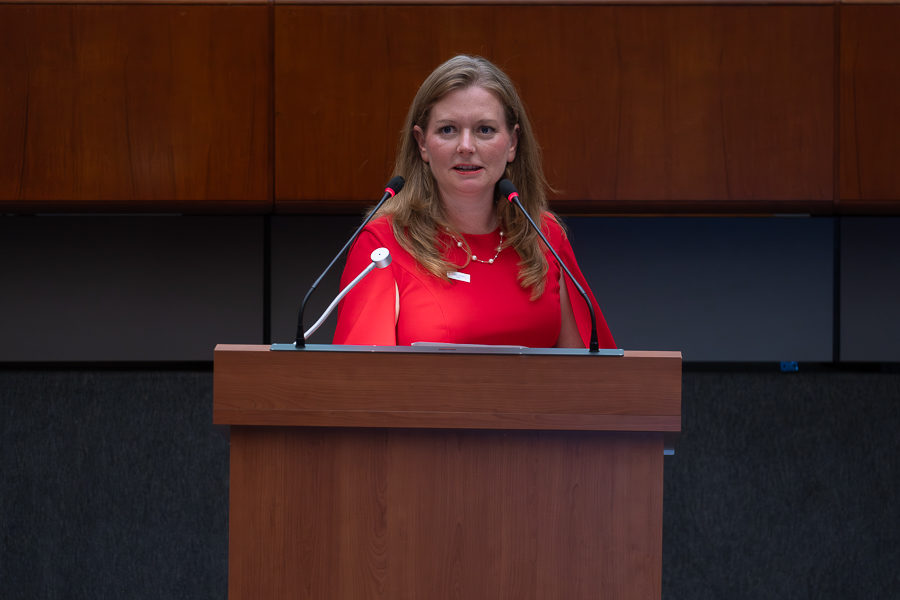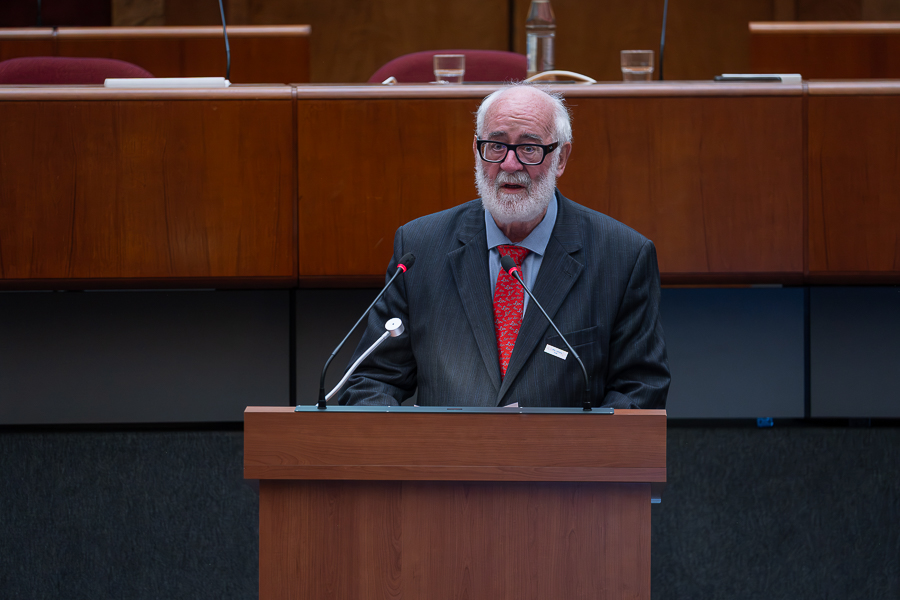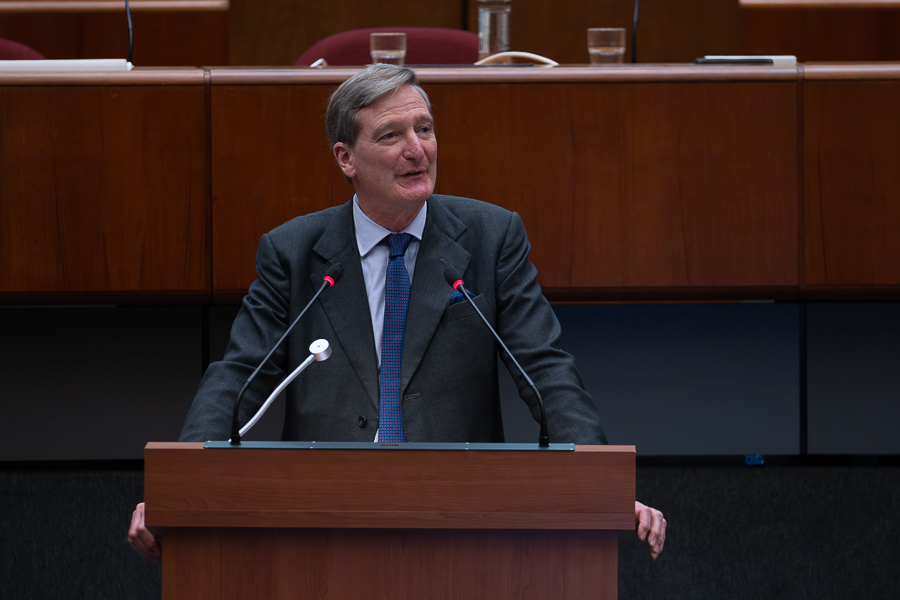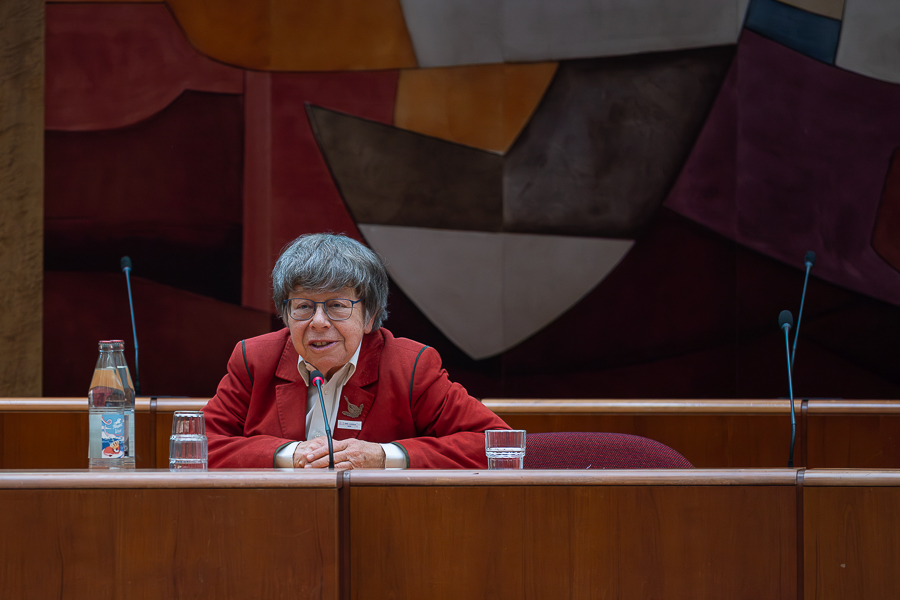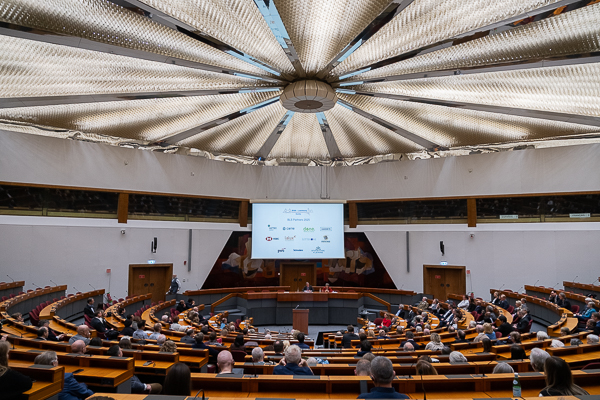 Credit: Ali Sahib, Chronicle.lu
Credit: Ali Sahib, Chronicle.lu
On the evening of Wednesday 8 October 2025, the British-Luxembourg Society (BLS), the Patrons and Council and the Fondation Nationale de la Résistance (FONARES), hosted the Sir Winston Churchill Memorial Lecture 2025 at the Hémicycle in Luxembourg Kirchberg.
The event, which welcomed former UK Shadow Home Secretary and Attorney General for England and Wales, Dominic Grieve KC PC, as keynote speaker, focussed on the UK’s future in Europe and its potential return to the European Union.
The event began with an introduction by Darren Robinson, President of the British Luxembourg Society, who welcomed members of the BLS and invited guests and noted the attendance for the event was the highest recorded for the society.
Mr Robinson referenced the recent Trounwiessel celebrations and highlighted the link between the late Grand Duke Jean and the BLS with this year’s announcement of the society’s Grand Duke Jean Education Award, which aims to strengthen cultural ties through academic pursuits and artistic endeavours.
Mr Robinson then invited guest speaker Guy Dockendorf, Vice-President of FONARES, to make the traditional opening speech on behalf of the foundation. Mr Dockendorf began by remarking on the relationship between the BLS and FONARES, highlighting the importance of the relationship between the UK and Luxembourg during the Nazi occupation of World War II. He talked of the more than 5,000 members, women and men, of the resistance who were arrested, tortured and put to death by the German secret police, with many taken to different concentration camps, like Auschwitz, Buchenwald, Dachau, Mauthausen - one of whom was his father.
Mr Dockendorf noted that both the BLS and the Fondation Nationale de la Résistance “observe with great concern, in many places, also in Europe, how fascist, nationalist and extreme right-wing movements and parties are gaining strength”. He said: “This threatening development must be taken seriously at all costs. There is still a chance to stop this progression and choose a different path. United in solidarity with all those who are committed to democracy, human rights and international solidarity, social justice and peace will gain success.”
Louise Benjamin, Past President of the British Luxembourg Society, then provided the introduction for the event’s keynote speaker, Dominic Grieve, during which she commented on his career as Attorney General of England and Wales and as Advocate General of Northern Ireland, his “renowned experience” in constitutional law and his commitment to civil liberties, as well as his personal connections to Luxembourg.
Dominic Grieve began his speech talking of the emotional connection he shares with the Grand Duchy through his father’s time spent with the British army in Luxembourg after its liberation from the Nazis in 1944. He noted: “It forged friendships for him that lasted the rest of his life, and it was his desire to show his family both its importance to him and the beauties of the city and countryside that first brought me here as a teenager.”
Mr Grieve then talked of the “privilege” to be invited to participate in the Winston Churchill Memorial Lecture, recalling how he had gone to Westminster Hall as a seven-year-old to see Churchill’s body lying in state following his death in 1965. He then highlighted Churchill’s European speech of September 1946 and his chairing of the movement of the European Unity Conference in The Hague in 1948, which led directly to both the creation of the Council of Europe and the European Coal and Steel Community.
Mr Grieve then remarked on the post-war economic changes which took place across Europe, highlighting how during the period of the 1950s to early 1970s both France and Germany overtook the UK in terms of GDP, produced more workers with intermediate level qualifications and introduced tax systems more conducive to growth.
He also noted how the British Commonwealth's share of imports and exports had fallen from nearly 50% in 1954 to only 20% in 1972, when, despite French leader General de Gaulle's two previous vetoes against it, the UK successfully joined the European Economic Community (EEC) in 1972, and trade with the EEC had already risen to 42% of British exports.
This would be one of several historical instances of friction between the EEC and the UK which Mr Grieve would highlight and compare to the circumstances behind the Brexit vote of 2016 and the exit negotiations with the European Union which would follow. He said: “First, it is the hard truth that for much of Europe, Luxembourg perhaps excepted, we've failed since the 2008 financial crash to deliver reasonable levels of growth. For many in Britain, the living standards of 2016 were lower than those in 2008. Public dissatisfaction about this was harnessed by those advocating Leave into a political-economic theory that once outside the EU, a UK free of regulatory burdens and EU bureaucracy would flourish better as a participant in global markets.”
Mr Grieve talked of the “identity crisis that beset Europe in the 21st century”. He emphasised: “When linked to the fears being generated about the EU's externally porous borders and the vast migratory influx coming from the Middle East and Africa, it was quite enough to deliver the [Brexit] Leave Vote majority.”
One of the most striking points raised by Dominic Grieve in relation to the trade impact of the UK leaving the European Union came when he highlighted the Leave campaign’s idea that post-Brexit trade deals with non-EU countries could be negotiated freely and would replace the previous levels of trade lost with the EU. To emphasise the error in this thinking, he highlighted that the current value of UK exports of goods and services to Australia, population 26 million, was £16 billion (€18.45 billion) in 2024 and that to Luxembourg, an EU member, population 670,000, was £13.2 billion (€15.2 billion) in the same period, despite the increased bureaucracy and trade barriers brought about as a result of Brexit.
From here, Mr Grieve turned to the subject of what might be done to address such problems with the UK’s economic and political relationship with the EU and remarked that in spite of the first post-Brexit UK-EU summit in May, only “tentative steps” had been taken. He stated: “The caution of the UK government in seeking a closer rapprochement with the EU comes, of course, in large measure from political considerations. The divisive nature of the post-Brexit debate has made all the mainstream political parties wary of discussing it.”
Mr Grieve emphasised that one major sticking point in any future deals between the UK and the EU would be the jurisdiction of the European Court of Justice and the interpretation of EU law. He said: “Anything that suggests a reopening of issues which affect sovereignty, such as agreements that might raise the UK back under the jurisdiction of the European Court of Justice, or might see a return to freedom of movement, seem to remain largely taboo.”
Yet, Dominic Grieve still said he had reason to be optimistic. He said: “It does look fairly clear that the UK electorate is in favour of finding ways to improve trade and contact with the EU at most levels.”
In closing Mr Grieve said: “Even if Britain were one day to rejoin, it would not be on the terms it had when it left. The EU itself is evolving under the pressures to which it is now subject. What is clear, however, is that without a pragmatic willingness to see shared advantage in every action that breaks down barriers to contact, trade and co-operation, the benefits that a true friendship of shared values can deliver will not materialise.”
He added: “Where we end up matters much less than getting started.”
There then followed a Q&A session moderated by Dame Eleanor Sharpston, DCMG KC, Advocate General at the CJEU (2006 to 2020), during which Dominic Grieve answered questions put to him by those in attendance.
The event concluded with a reception where food and refreshments were served to those in attendance.

